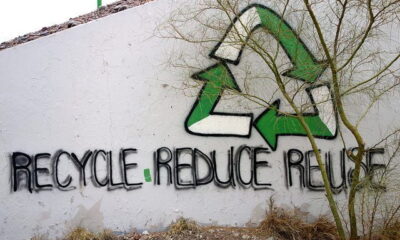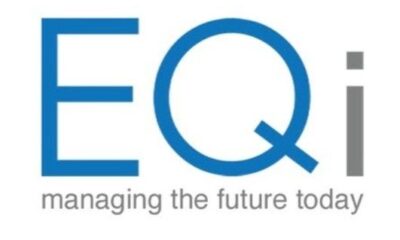

Economy
Democratising Sustainability Part 3
There are three fundamental issues facing executive teams regarding the way they may understand and hence approach what sustainability means and how to integrate it into their business processes: (1) the history of environmental/sustainability management; (2) their fiduciary duty to maximise shareholder profits and; (3) a lack of business metrics to measure and control performance. Steve Burt, CEO EQi Group, writes in a recent LinkedIn post. You can read part 1 here and 2 here.
The Business Issue
Sustainability in many respects has evolved out of environmental management (EM) which has always been a compliance-based regulation function managed by a specialist. EM is relatively easy to understand and straight forward to assess with clear cause and effect perimeters. Sustainability is a broad term, all-encompassing in its scope involving direct control operations and external supply chains.
EM is viewed by many executives as a necessary cost to prevent litigation and reputational damage. EM has been linked to numerous high profile examples such as the recent Deep Water Horizon disaster. Executives and management teams struggle with what sustainability is and how to apply. There remains significant misunderstanding in businesses regarding what sustainability really is. Is it a cost or a contribution item? Is it resource efficiency or some qualitative process?
Executive teams are the custodians of someone else’s company i.e. shareholders, and hence are tasked with maximising shareholder returns. This duty is often used as a barrier to implementing sustainability change; however this duty based on the Dodge v Ford ruling is often misused, since the ruling stated:
‘A business corporation is organized and carried on primarily for the profit of the stockholders. The powers of the directors are to be employed for that end. The discretion of directors is to be exercised in the choice of means to attain that end, and does not extend to a change in the end itself, to the reduction of profits, or to the non-distribution of profits among stockholders in order to devote them to other purposes…’
Does sustainability help protect a company’s assets or increase profits for shareholders? If the answer is positive then executives should be exploring how their operations could use sustainability. However the challenge is that the term sustainability is actually an outcome or state that is achieved by remaining in balance with the consumption limitations of planet earth, Plc No 1.
The 101 of business management is that if you can’t measure it you can’t manage it. Business sustainability is exactly the same and hence why business teams are struggling to establish hard metrics to show performance and risk. With the lack of a formal system to measure sustainability businesses have been lured into using voluntary reporting and various qualitative processes to compete for league table style positions.
To compound the executive’s challenge there is a plethora of reporting standards and awards for companies and shareholders to choose from. All of the current reporting standards are voluntary, based on qualitative measures and often phrased in such a way that allows idiosyncratic responses. Apart from possible marketing benefits which could be dubious due to the lack of rigor, why would executives incur the cost or distraction of implementing real and meaningful accountability in understanding their sustainability positions?
How does one tell from a company’s sustainability report whether they are really reducing their consumption and bringing their business model more in line with planet earth’s consumption and renewal capacity? Or is it all about perception that they are doing the right thing, which means charming more customers. The fact is that many sustainability reports are just good PR, designed not to be understood but to give the impression we are doing our bit. Executives and shareholders want annual profitable growth, which is mostly about increased sales, hence increased consumption.
With the business mentality being driven by quarterly results and annual bonuses, few businesses are thinking about long term performance (5 to 10 years) which requires long term investment. Such investment requires hard data and resource planning to develop circular trading systems where a product has an end of use value. Where is the system or method to provide executives and shareholders with the relevant metrics to make the real sustainability change? This is about economics, future risk, business biosphere rebalancing and resilience.
The Compliance Effect
Since the industrial revolution the manner in which business operations function and conduct themselves has been an on-going debate between governments, societies and business owners. The owners seek as much freedom as possible with the least amount of consequence; governments wish to encourage wealth creation and employment while keeping their constituents content as part of the democratic process. Societies are often torn between survival, wealth creation and wellbeing.
Over the years compliance has been used as a mitigation mechanism to provide all parties with a means to achieve their joint and competing agendas. Early compliance was used to safeguard human life and blatant environmental damage while today’s operations seek to minimise an array of damaging effects to humans, the environment and society. However the key function of compliance remains the same: it’s for protection not direction. Is compliance the mechanism that should be used to drive operational biosphere rebalancing – sustainability?
Compliance has achieved many positive aspects and has a place in improving the world; however it is a blunt instrument if the world needs maximum improvement rather than minimum change. Many compliance standards are based on qualitative processes which leave much to interpretation, with tick box methods and hence broad ranges of applications to achieve a certification.
Compliance systems are designed to meet a standard, which is usually based on a minimum requirement that creates an acceptable point between the best and the worst situation, hence an average which is often weighted to the lowest not the highest performance. Performance standards are also subjective and prone to variation since most compliance is managed by a specialised person who acts as a gatekeeper and is seen as a necessary cost against litigation.
Even across the most compliant, controlled industry standards are often seen by the average employee as not their problem or just something to be followed or ‘interpreted’ to allow the job to be completed with the least amount of interference. Standards are there to be bent if possible or followed if needed. Fear of getting into trouble is one of the key controllers to getting a workforce to adhere to a given compliance process.
To make an operation sustainable or biosphere balanced, quantification is required, not qualification. Employees at every level need to participate, take ownership for and contribute to developing innovative solutions that enhance the operation’s effectiveness and provide a meaningful roadmap to business biosphere rebalancing.
Making an organisation sustainable requires more than tick sheets and a few compliance specialists using autocratic and exclusive processes. Business biosphere rebalancing (sustainability) requires an inclusive and democratic approach requiring participation at every level in an organisation, making small efficiencies/savings that aggregate into significant savings. It requires accurate measurement, shared commitment, understandable information and knowledge sharing.
Transparency and Trust
There have been a number of occasions in recent history when the world has been faced with possible dire situations, disease epidemics, nuclear annihilation and religious Armageddon. More recently climate change has become the end-of-life-as-we-know-it subject, but is it? And do people really understand how real it is?
When asked about climate change, some people individually state they believe and many will state they are concerned if not worried. However, there seems to be a significant disconnection between people’s understanding of climate change and how it will directly affect them. A recent survey in the USA seems to underline the real problem in changing behaviours to create a sustainable living model. Although this survey was US centric it is not unreasonable to extrapolate that similar population thinking is across the developed world if not entire globe.
Another recent study in the USA showed a growing scepticism about the validity of climate change which would further endorse a disconnection between people’s words and actions. The 2013 Nobel Prize in medicine winner Randy Schekman of the University of California, Berkeley pointed to a possible reason for people’s apathy, “Science ignorance is pervasive in our society, and these attitudes are reinforced when some of our leaders are openly antagonistic to established facts.”
Compound science ignorance with political distrust, media propaganda and on-going sustainability hype and is it any wonder that populations are at best confused and at worst, completely distrustful of any information relating to sustainability? It appears that populations have no trust in science, politicians, business leaders or so-called experts, which makes it easy for people to defer personal actions. Without plain English information that helps people connect to their personal ‘which means to me,’ the majority of people will dismiss the issue and prioritise more immediate personal issues.
To further add to both business and consumer mistrust is the sheer number of so called sustainability standards across the world, some 500 and counting! Which one is right? All of them? Which one do I believe? How many have been sponsored by an industry or self-interest body? If there are so many winners why aren’t we seeing tangible progress in sustainability, or is this just a farce to hide the real truth? Just a few lEQitimate questions that fuel mistrust and fog transparency.
It has been often stated that the majority of people wish to be part of the solution not the problem, but how can people make an informed decision when they feel they have been misled, conned or lied to. People make decisions on information they can trust, information that allows them to make personal choices, information that is easy to understand.
Science may be accurate but it’s not often easy to understand. Business employs media agencies to spin the facts and sell the dream. Politicians say whatever it takes to get the vote. Experts are often fuelled by self-importance and, like rock stars, need fans rather than interactive conversations. Where can people get trusted factual information that is easy to understand?
A Thought!
Sustainability is everyone’s problem hence we should be seeking ways to include everyone, in a democratic manner, to provide everyone with factual information that can be trusted, unspun and real. A key aspect in getting people to understand what adjustments they may need to make in their lifestyles is providing people with easy to understand information that has simple messages. Since businesses are made up of and run by people, the same should apply to all organisations.
In the age of cloud technology and handheld smart devises it is now possible to equally democratise business management and consumer systems to engage and empower business teams, suppliers and customers to have factual information at their fingertips.
EQi is a data and technology company that connects business to sustainability by providing resource efficiency management solutions. EQi has announced successful certification as a founding UK B Corporation.


 Environment12 months ago
Environment12 months agoAre Polymer Banknotes: an Eco-Friendly Trend or a Groundswell?

 Features11 months ago
Features11 months agoEco-Friendly Cryptocurrencies: Sustainable Investment Choices

 Features12 months ago
Features12 months agoEco-Friendly Crypto Traders Must Find the Right Exchange

 Energy11 months ago
Energy11 months agoThe Growing Role of Solar Panels in Ireland’s Energy Future





























